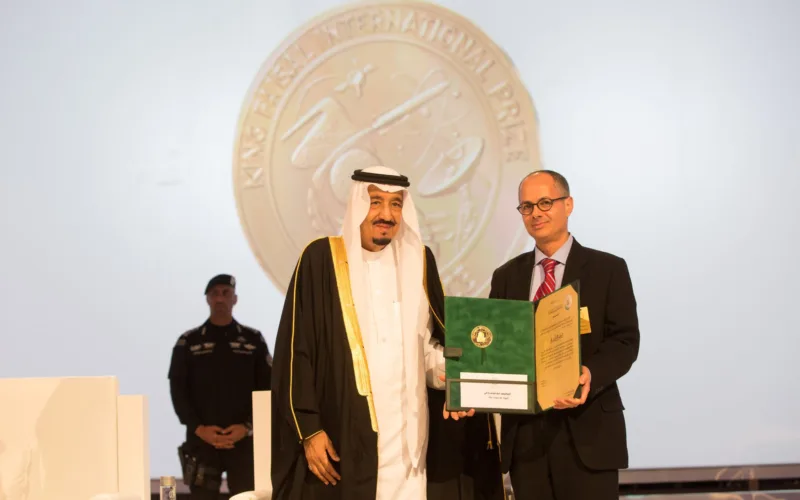Key Takeaways
- Omar Yaghi wins Nobel for metal-organic frameworks
- Published 300+ papers with 250,000 citations
- Granted Saudi citizenship under Vision 2030
Professor Omar Mounes Yaghi, advisor to King Abdulaziz City for Science and Technology and chemistry professor at University of California, Berkeley, received the 2025 Nobel Prize in Chemistry.
The Royal Swedish Academy of Sciences recognized his foundational work in network chemistry, particularly metal-organic frameworks and covalent organic frameworks.
These porous materials have transformed materials science, enabling new approaches to clean energy, water extraction, and environmental applications.
Yaghi’s research career spans decades, producing more than 300 scientific publications that have accumulated over 250,000 citations.
His metal-organic frameworks represent crystalline compounds creating microscopic cages capable of capturing molecules like water and carbon dioxide.
The covalent organic frameworks form extended structures with potential applications in gas storage and separation technologies.
The Nobel Committee highlighted how Yaghi’s frameworks have opened new directions for addressing global challenges.
His materials show promise for harvesting water from atmospheric humidity, storing hydrogen for clean energy, and capturing carbon dioxide to mitigate climate change.
These innovations emerge from basic research into how molecular building blocks can assemble into predictable structures.
Dr. Munir bin Mahmoud Al-Dasouqi, President of King Abdulaziz City for Science and Technology, thanked Saudi Arabia’s leadership for supporting research and development systems.
He stated Yaghi’s achievement reflects the Kingdom’s vision to establish itself as a global science and innovation hub. The scientist’s work at the Center of Excellence for Nanomaterials for Clean Energy Applications demonstrates how strategic investments in research can yield practical solutions for humanity.
Yaghi previously received numerous honors including the King Faisal International Prize, Wolf Prize in Chemistry, and Albert Einstein World Award of Science.
His Saudi citizenship grant in 2024 aligned with Vision 2030 objectives to attract specialized talent contributing to economic and scientific development. The Kingdom’s leadership has emphasized creating environments where innovators can advance knowledge while addressing societal needs.
The Nobel recognition underscores growing international collaboration in materials science. Yaghi’s frameworks have inspired worldwide research into porous materials for sustainable technologies.
His Berkeley research group continues developing new materials while mentoring next-generation scientists. The award marks the first Nobel Prize for chemistry awarded to a scientist working within Saudi Arabia’s research infrastructure.
Yaghi’s journey from fundamental discovery to practical application illustrates how patient investment in basic research can yield transformative technologies. His water harvesting systems, already demonstrated in arid regions, offer potential solutions for water-scarce areas worldwide.
The Nobel Committee noted these applications demonstrate science’s capacity to address urgent human needs while advancing fundamental knowledge.


 WhatsApp Channel
WhatsApp Channel
 Instagram
Instagram
 Facebook
Facebook
 X (Twitter)
X (Twitter)
 Google News
Google News